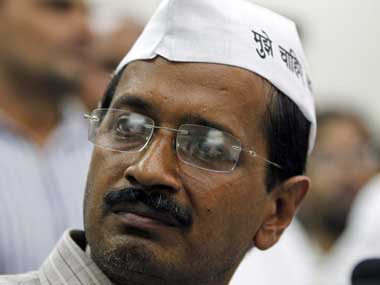Even while he reiterates his commitment to the idea of ‘Swaraj’ through which power is practically taken away from state machinery and handed over to the people, Arvind Kejriwal has admitted, for the first time perhaps, that even in a truly participative democracy, decisions on issues such as foreign policy, banking, currency and others cannot be taken through referendums. In an interview to the Times of India, the CM-designate of the national capital region of Delhi elaborated on the water and power promise that remain the AAP’s top priority upon assuming office. Kejriwal clarified that the free 700 litres of water daily will be only for those with a water connection at first. Some areas even have water pipeline networks that remain defunct because the Congress and BJP are both involved with the huge water tanker mafia, he said. [caption id=“attachment_130733” align=“alignleft” width=“380”]  AP[/caption] Importantly, on reducing power bills by 50 percent, Kejriwal admitted that the AAP does not have the exact calculations yet, but is basing its promise on its intention to ensure better management of the power distribution companies. “There is, however, evidence of a lot of wrong doing in the books of power distribution companies. In 2002, when privatization took place, it was said that there were losses of 60% in power distribution in Delhi. And that after privatization, these losses would come down, revenue would go up and accordingly power tariff in Delhi would fall. Today, distribution losses have come down to 15%. This 45% reduction in unmetered,unpaidelectricity translates into thousands of crores. Where has this money gone? Far from tariff coming down, it has gone up threefold since then. This needs to be audited,” he is quoted as saying. Sister concerns of the discoms also end up functioning as a front for artificial losses – the discoms have purchased surplus power and sold it at a loss to a sister concern. Purchase of equipment at inflated prices from the sister concerns was also a regular practice, Kejriwal said. Spelling out for the first time his views on foreign policy, the use of referendums for complex decisions and more, Kejriwal admitted that referendums will not always work. “Referendums can’t be used to decide subjects like currency, foreign policy, banking etc,” he said. The mohalla sabhas, empowered local decision-making bodies to be formed, will also not be allowed to function like khap panchayats, he added. On his biggest challenge over the coming months – handling governance in Delhi even as the AAP makes a pitch to scale up its operations to take a crack at the 2014 general elections – Kejriwal said the biggest campaign platform, in the vision of the AAP, would be its performance in Delhi. Read the complete interview here
Kejriwal says the biggest campaign platform, in the vision of the AAP, would be its performance in Delhi.
Advertisement
End of Article


)
)
)
)
)
)
)
)
)



